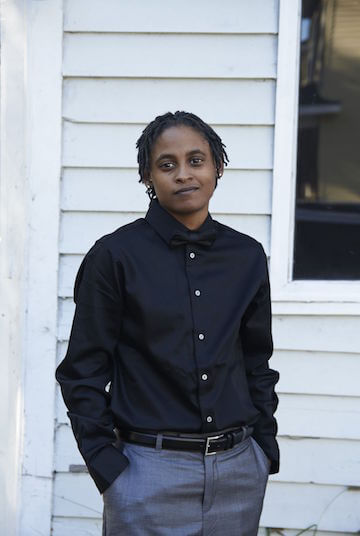US District Judge Dean D. Pregerson ruled on December 15 that two Pepperdine University students could sue the school for sexual orientation discrimination under Title IX, a federal statute that prohibits sex discrimination by educational institutions receiving federal money.
The ruling — rejecting the Los Angeles area school’s motion to dismiss the discrimination claims advanced by Haley Videckis and Layana White — is the first under Title IX of the 1972 Education Amendments to acknowledge an Equal Employment Opportunity Commission’s ruling this past summer that sexual orientation discrimination claims should be treated as sex discrimination claims under Title VII, the analogous federal law that bans workplace sex discrimination.
Videckis and White are former members of the Pepperdine women’s basketball team. Their lawsuit, wrote Judge Pregerson, “arises out of allegedly intrusive and discriminatory actions that Pepperdine and its employees committed against Plaintiffs on account of Plaintiffs’ dating relationship.”
Two former Pepperdine women’s basketball players can proceed with harassment, retaliation suit
The women allege that in the spring of 2014, Coach Ryan Weisenberg and other team staff members “came to the conclusion that Plaintiffs were lesbians and were in a lesbian relationship.” Ryan and the staff, they say, “were concerned about the possibility of the relationship causing turmoil within the team” and so “harassed and discriminated against” them to force them to quit.
Pepperdine’s motion to dismiss the lawsuit argued that Title IX does not apply to sexual orientation discrimination claims and that the plaintiffs’ allegations would not support a sex discrimination claim based on “gender stereotype discrimination.” The Title IX claims, including one for retaliation, the school asserted, “should be dismissed because they are uncertain and not legally cognizable.” Pepperdine also argued that since the women were secretive about their relationship, they could not mount a sexual orientation discrimination or retaliation claim.
“[S]exual orientation discrimination is not a category distinct from sex or gender discrimination,” Pregerson wrote. “Thus, claims of discrimination based on sexual orientation are covered by Title VII and IX, but not as a category of independent claims separate from sex and gender stereotype. Rather, claims of sexual orientation discrimination are gender stereotype or sex discrimination claims.”
He continued, “[T]he line between sex discrimination and sexual orientation discrimination is ‘difficult to draw’ because that line does not exist, save as a lingering and faulty judicial construct.”
Pregerson elaborated on his reasoning, writing, “In sexual orientation discrimination cases, focusing on the actions or appearance of the alleged victim of discrimination rather than the bias of the alleged perpetrator asks the wrong question and compounds the harm. Plaintiff’s ‘actual’ sexual orientation is irrelevant to a Title IX or Title VII claim because it is the biased mind of the alleged discriminator that is the focus of the analysis. This is especially true given that sexuality cannot be defined on a homosexual or heterosexual basis; it exists on a continuum. It is not the victim of discrimination who should be forced to put his or her sexual orientation on trial. We do not demand of a victim of alleged religious discrimination, ‘Prove that you are a real Catholic, Mormon, or Jew.’ Just as it would be absurd to demand that a victim of alleged racial discrimination prove that he is black, it is absurd to demand a victim of alleged sex discrimination based on sexual orientation prove she is a lesbian. The contrary view would turn a Title IX trial into a broad inquisition into the personal sexual history of the victim.”
The judge concluded that it “is impossible to categorically separate ‘sexual orientation discrimination’ from discrimination on the basis of sex or from gender stereotypes; to do so would result in a false choice.”
Pointing to the former players’ claim, Pregerson wrote, “Plaintiffs allege that they were told that ‘lesbianism’ would not be tolerated on the team. If Plaintiffs had been males dating females, instead of females dating females, they would not have been subjected to the alleged different treatment. Plaintiffs have stated a straightforward claim of sex discrimination under Title IX.”
Acknowledging the EEOC’s July 16 Title VII decision, Pregerson asserted that his conclusion “is in line” with that.
“The EEOC concluded that ‘an employee could show that the sexual orientation discrimination he or she experienced was sex discrimination because it involved treatment that would not have occurred but for the individual’s sex; because it was based on the sex of the person(s) the individual associates with; and/ or because it was premised on the fundamental sex stereotype, norm, or expectation that individuals should be attracted only to those of the opposite sex.’ For these reasons, as well as for the reasons stated in this Order, this Court agrees.”
The judge also concluded the plaintiffs had alleged a plausible retaliation claim, including being forced off the basketball team when they complained about their treatment by the coaches.
“Pepperdine argues that because Plaintiffs tried to hide their relationship status, they therefore never could have made a complaint about discrimination,” wrote Pregerson. “This argument is without merit. Plaintiffs clearly allege that they complained to the coaching staff and school officials about intrusive questioning and harassment to which they were subjected. The fact that Plaintiffs may never have explicitly told school officials that they were dating is irrelevant to whether they complained that they were being harassed. Again, requiring that Plaintiffs disclose their sexual orientation or relationship status improperly focuses the inquiry on the status of the victim rather than the bias of the alleged harasser, and imposes a burden that Title IX does not contemplate.”
The plaintiffs are represented by Jeffrey J. Zuber and Jeremy J. Gray of Zuber Lawler & Del Duca LLP, a Los Angeles law firm.
In a release this month, the Human Rights Campaign reported that at least 56 religiously-affiliated colleges and universities have sought exemptions from the US Department of Education from applying sex discrimination protections in Title IX to LGBT students. According to BuzzFeed, 60 such applications were filed in recent years, 43 of them this year, and 22 have been approved, some of them dealing with employment as well as admissions. To date, no such application has ever been denied, BuzzFeed reported. HRC is calling on the Department of Education to require schools to disclose what exemptions they have received.


































